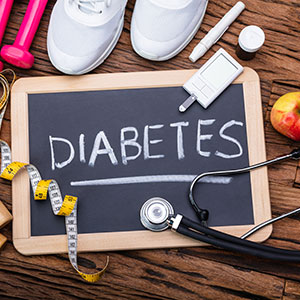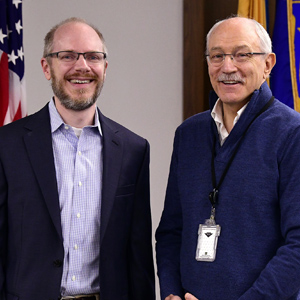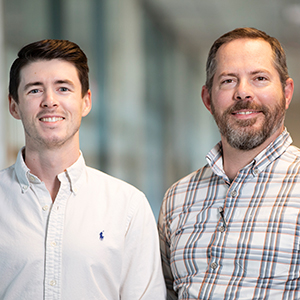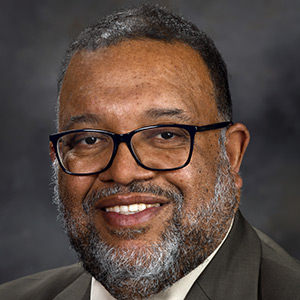Two scientists visited the NIEHS campus in June to share their unique perspectives on issues related to diversity and inclusion.
Ericka Reid, Ph.D., director of the NIEHS Office of Science Education and Diversity, introduced the talks, scheduled in observance of Pride Month, as part of the NIEHS Diversity Speaker Series. She explained that the series helps to foster greater cultural awareness.
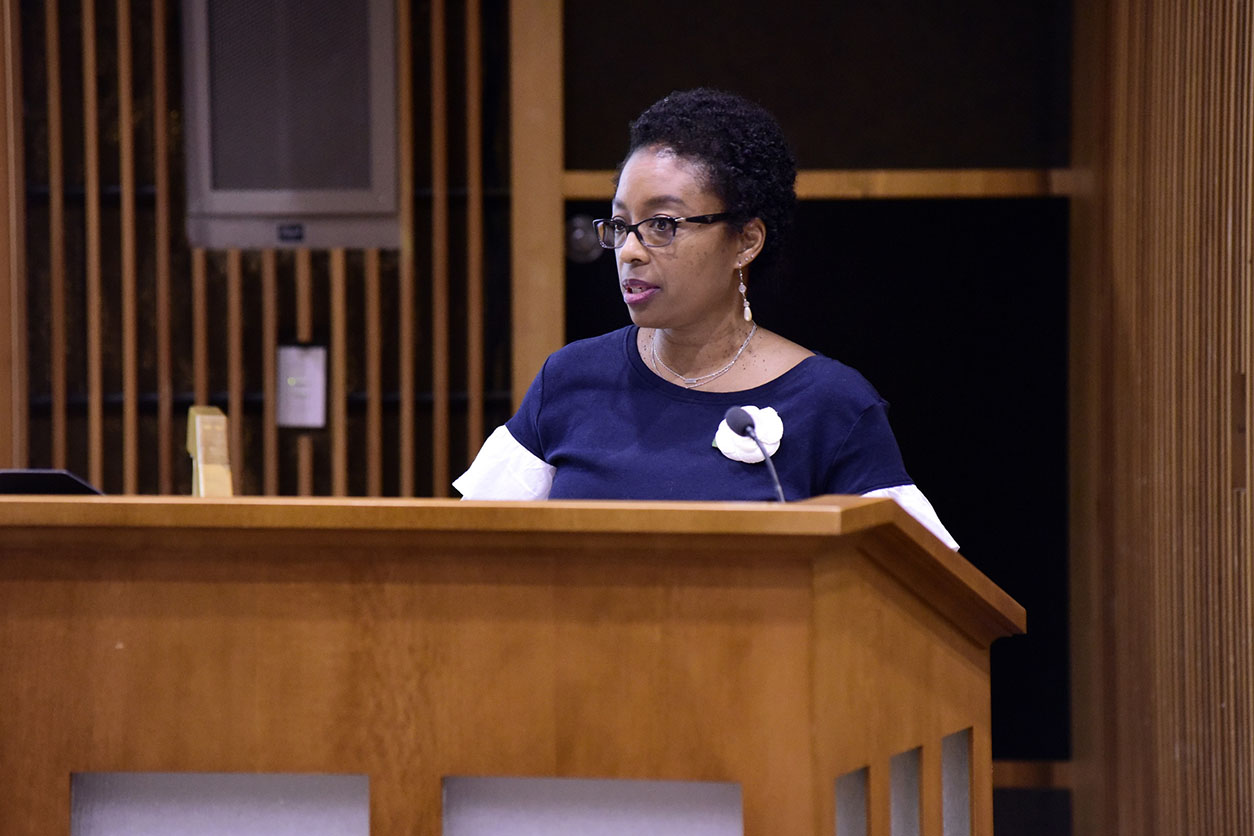 Reid emphasized that the Diversity Speaker Series cultivates inclusivity at NIEHS. (Photo courtesy of Steve McCaw)
Reid emphasized that the Diversity Speaker Series cultivates inclusivity at NIEHS. (Photo courtesy of Steve McCaw)A scientist on a mission
The first lecture, given on June 19 by Victor Ruthig, Ph.D., seemed to go a long way toward that end. During his talk, “A Genetic Journey to Understanding Me,” Ruthig explained how his research has helped him understand his life as a gay man, and how, in turn, his personal life informed his research.
Ruthig, a postdoctoral fellow at Duke University School of Medicine, studies sex determination and embryonic male development. He recently investigated how teratomas, which are tumors made of many embryonic cell types, can develop from male germ cells.
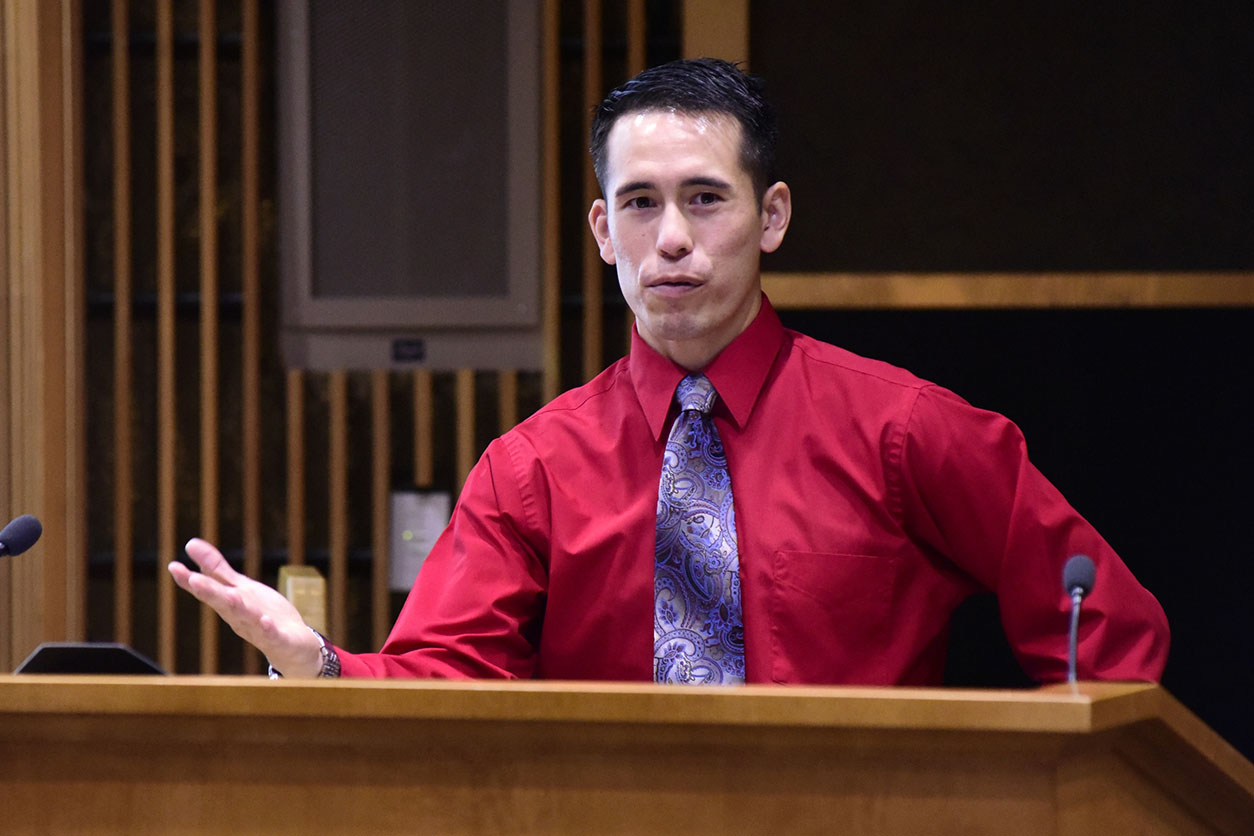 Ruthig said that his research has helped him to better understand his own identity. (Photo courtesy of Steve McCaw)
Ruthig said that his research has helped him to better understand his own identity. (Photo courtesy of Steve McCaw)These and other research projects seem to have piqued his interest in broader topics intersecting both science and culture. For example, he said he has pondered whether reproductive technology will one day help gay couples to have bipaternal offspring. He also discussed the state of inclusivity at research institutions, emphasizing that important strides have been made recently.
Ruthig used his current institution, Duke University, as an example of such progress. He said that the school’s Responsible Conduct of Research training allows scholars to take a course addressing issues that can arise when research involves the lesbian, gay, bisexual, transgender, queer, intersex, and asexual (LGBTQIA) community.
He also shared a harrowing story. Ruthig said that as a teenager, he was tormented by many of his peers, which led to depression and suicidal ideation. But he pointed out that circumstances changed for the better as an undergraduate at Rutgers, where he was able to become more comfortable with himself.
Ruthig went on to earn his doctoral degree from the University of Hawaii at Manoa, and he now advocates for the LGBTQIA community.
Troubling facts about transgender health
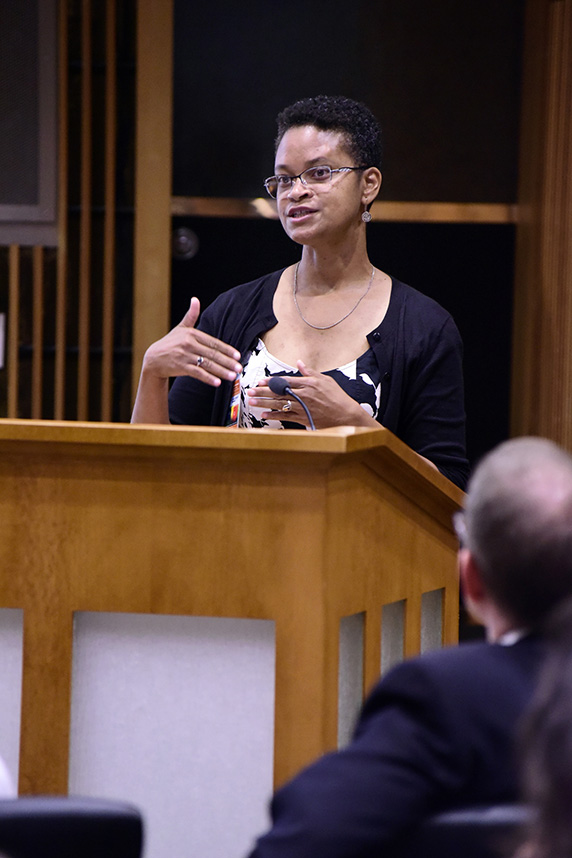 Poteat presented alarming statistics regarding transgender health. (Photo courtesy of Steve McCaw)
Poteat presented alarming statistics regarding transgender health. (Photo courtesy of Steve McCaw)During her talk on June 28, Tonia Poteat, Ph.D., shared studies on transgender health that show how high rates of depression, suicidality, violence, victimization, and human immunodeficiency virus (HIV) are related to stigma and minority stress.
Poteat, an assistant professor of social medicine at the University of North Carolina at Chapel Hill, and a core faculty member in the university’s Center for Health Equity Research, noted that 1.4 million individuals in the U.S., or 0.6 percent of the population, identify as transgender.
Some of the health problems she described are especially prevalent among black transgender women who face stigmas based on race and gender. For example, whereas only 0.3 percent of U.S. individuals self-report HIV, a shocking 19 percent of black transgender women in the U.S. do so, she explained.
“[Transgender women] want holistic support,” said Poteat. “They want people to see them as a whole person [and] to help them achieve their goals as women.” She noted that holistic support includes programs related to job readiness, mental health, anti-violence, gender affirmation, housing, and so forth.
Poteat said she is focused on helping to provide medically appropriate and culturally competent care to such individuals. She is collaborating on a project funded by the Patient-Centered Outcomes Research Institute that is aimed at addressing transgender health disparities.
No room for complacency
Both June lectures seemed to spur reflection in attendees — and a desire to challenge the status quo when it comes to diversity and inclusion.
In the words of NIEHS Executive Officer Chris Long, “NIEHS is a safe zone; everybody belongs here. We are an inclusive community. We are not perfect — we still have problems. But we are working on it, and we are talking out loud about it.”
(Elise Smith, Ph.D., is a postdoctoral fellow in the NIEHS Ethics Office.)





